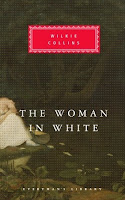First a little summary: Aaron Rowe is a troubled teen who lives with his Mam in a trailer park. Things aren't going well for Aaron. He has nightmares that involve dead people and he sleepwalks, often miles from his home. . He is worried about his Mam who seems to be losing her mind. As hard as Aaron tries he can't seem to protect her from herself. But one thing is going well for Aaron, his internship as a trainee at John Barlow and Associates, a funeral home. Working with the dead is somehow comforting and John Barlow thinks that Aaron is a natural for the mortuary business.
What was your reaction to how many details the book gave about corpses?
- Carly: It set the scene well. You could put yourself in the shoes of Aaron, or a new person to working in the mortuary business. Because it was so specific in real life it made the details in the dreams seem more realistic. I used to watch Crossing Jordan on TV, which is about the work of medical examiners, so I wasn't shocked or surprised by the details
- Me: I couldn't believe how graphic the details were about working with corpses. I wasn't grossed out but I kept wondering how some students would react.
- Carly: I wanted more details about what happened to Aaron in the past to help me understand why he was so tortured in the present. At one point he made a comment about having used up his quota of words and I wondered if it was an actual limit that was imposed on him supernaturally.
- Me: Like all good books readers are given details a little bit at a time in THE DEAD I KNOW, but I still wanted more back story to help me understand why he was so reticent to ask for help with Mam.
What did you think of Skye, the funeral director's daughter?
- Carly: She was obviously a precocious girl. I think she probably didn't have many friends because of living next to a funeral home. Because Skye was somewhat odd, she could relate to Aaron like no one else could and therefore could draw him out of his shell.
- Me: Even though Skye was pretty irritating as a character, she provided a necessary avenue for gaining information about Aaron and his insecurities.
- Carly: He was an example of a person who has faith in other people and he was an excellent role model for Aaron. At one point in the story there was a comment about a past trainee who disappointed him yet he did not lose his faith in mankind and trusted Aaron.
- Me: Often in YA lit adults are not available to help teens with their problems. That is not the case with John. He was an excellent role model for Aaron and really helped me at his most desperate moments. I really liked him.
What did you think of the ending? (No spoilers.)
- Carly: I am glad that the ending gave clarity to the mysterious event(s) in Aaron's life. There was a lot of foreshadowing leading up to the ending. It was nice to know what happened but I still wanted to know why he lost his memory.
- Me: Like all good books this book comes to a climax and then has a satisfactory resolution. I had most of my questions answers and even shed a tear or two. I liked the whole reading experience.
Rating:
- Carly: 2.5 out of 5 stars. Meh.
- Me: 4 out of 5 stars. I liked the book.
30 books Summer Reading Challenge
5 / 30 books. 16% done!








































